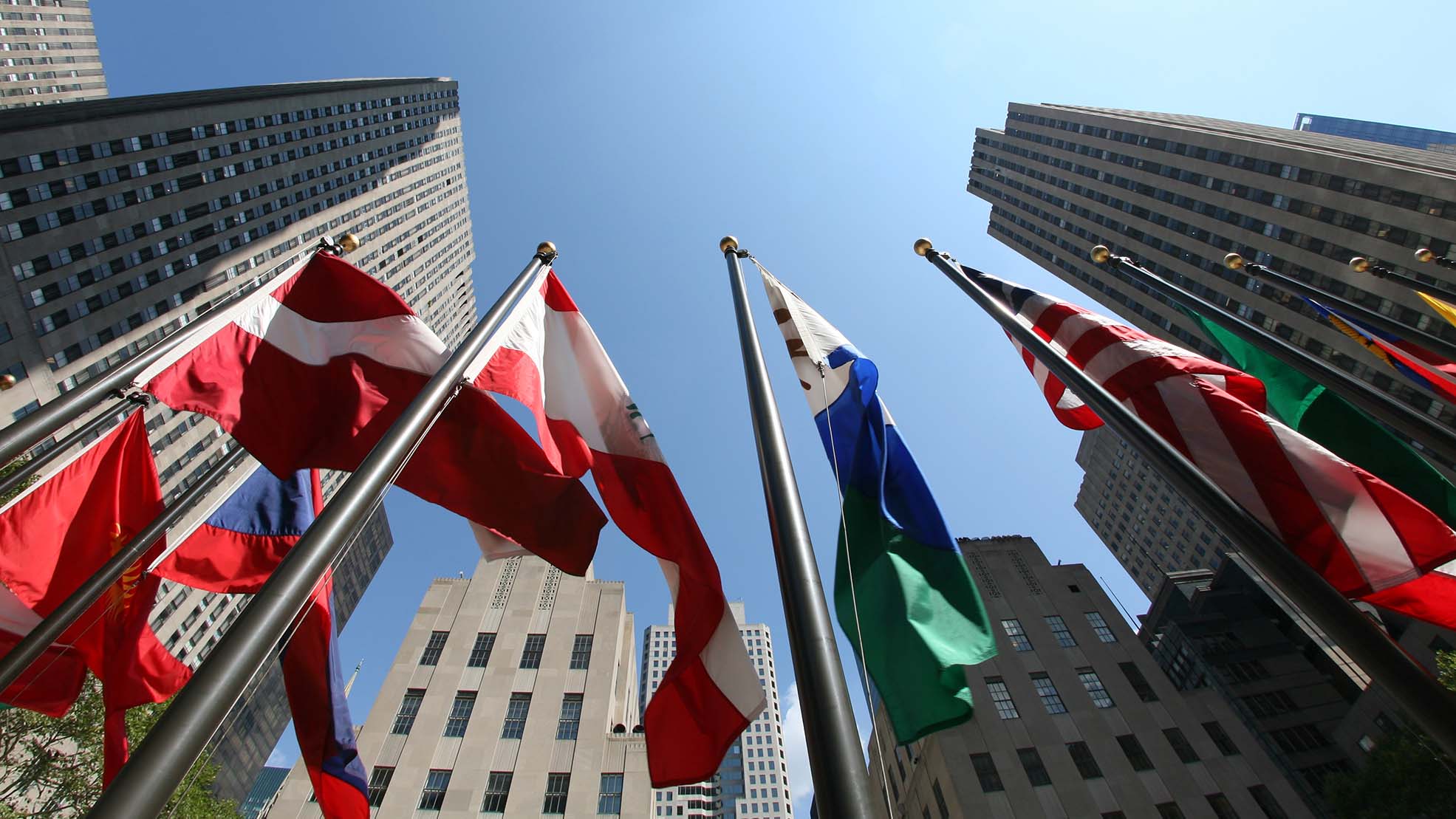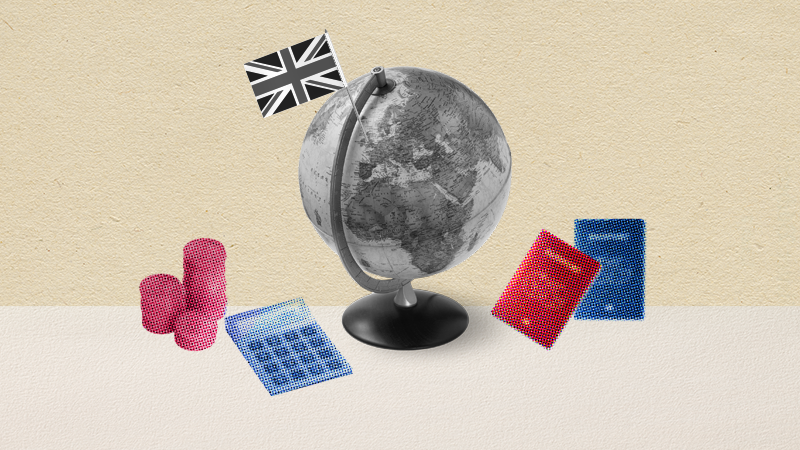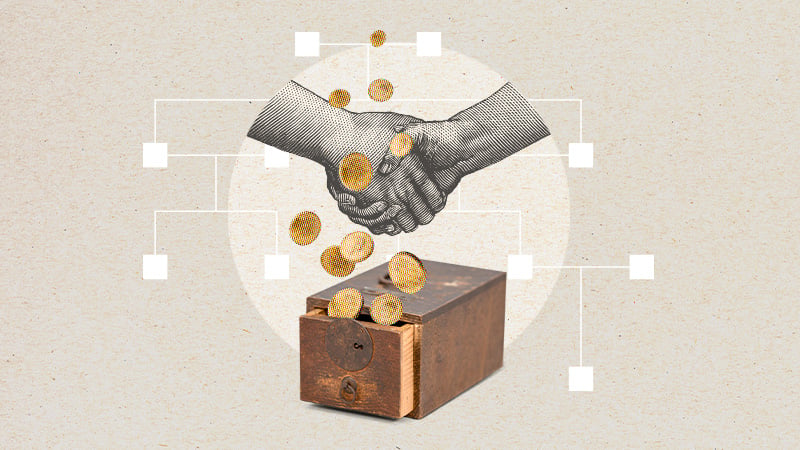Geopolitical risk: the comeback

The world has not experienced such instability for many years: conflicts in the Near and Middle East (Syria, Iraq, Afghanistan), tensions between China and its neighbours, the China-US trade war, instability on the Korean peninsula, the annexation of Crimea, the actions of terrorist groups...
The invasion of Ukraine by Russia on 24 February 2022 marks the peak of the return of geopolitical risk1. International tensions and geopolitical risk – which have rarely given rise to major market inflections2 and have often been relegated to the background by investors – are now back in the spotlight.
Acceleration of post-iron curtain globalisation and integration of “emerging countries”
After an initial acceleration phase in the aftermath of the Second World War, globalisation3 experienced a second surge following the fall of the Berlin Wall, which put an end to the Cold War. Two years later, the fall of the USSR marked the symbolic victory of one model over the other: the victory of liberalism over Soviet communism and the advent of liberal democracy.
This new democratic era is accompanied by the gradual integration of the major "emerging" countries into the world economy, especially with China's entry into the WTO in 2001: China thus marks its return to the international trade system and in less than twenty years has transitioned from being the “workshop of the world” to an “economic superpower”, gradually opening up to capital markets4.
Lulled by a general feeling of internationalisation, globalisation was greatly facilitated by the general lowering of trade rigidities, the side-lining of the role of states and the gradual creation of multinational-states.
This “euphoric” globalisation has had many obvious beneficial effects: economic, technological and scientific progress, productivity gains, human flows, the emergence of millions of people from poverty, easy access to foreign cultures, etc., but it has also had many harmful effects: the relative decline of the former “industrialised” nations, the relocation of jobs, the overexploitation of certain resources, political and health-related fragilities, etc.
A multipolar world
In addition to nationalist movements, these harmful effects of globalisation have fuelled a resurgence of protectionist measures, aimed at protecting industries that are not always ready to face international competition or to redress the balance of trade through customs duties, embargoes, quotas or regulatory barriers.
Like Brexit, the growing control of foreign capital flows, the China-US trade war, but also the conflict in Ukraine, the world is gradually fragmenting, fuelled by a certain objection to “globalisation”.
This objection was reinforced first and foremost by the Covid-19 crisis, which had the advantage of highlighting the need for greater sovereignty in many strategic areas, but also the fragility of certain strategic value chains. For example, the European Union has many dependencies5 (raw materials, batteries, active pharmaceutical ingredients, semiconductors, cloud technology, hydrogen, etc.), which were highlighted during the pandemic or, more recently, during the outbreak of the Ukraine conflict. However, (re)building sovereignty in these areas is a huge challenge.
Despite the humility and pragmatism with which we are approaching the current geopolitical conflict, it is clear that the recent invasion of Ukraine and its consequences will redistribute the established world order6. Let us remember that this world order has changed significantly since the Cold War: “the West”7 now represents less than 45% of the world's GDP against nearly 67% in 1973, while China has seen its GDP per capita multiply by 65 over the same period!
Without predicting a brutal8 “de-globalisation” - interdependencies between countries remain and will remain very strong - we can perceive the dawn of a more reasoned globalisation, integrating more social, cultural, environmental, or sovereign aspects of States.
What are the impacts on the markets and how can this risk be integrated?
Since the end of the Cold War, the peace dividend9 has reduced the fiscal pressure on defence spending and increased funding for social services. The year 2022 already marks a certain paradigm shift through successive announcements of increased defence budgets (China, Germany, France, etc.), reinforcing a global rearmament dynamic that has been more timid until now.
However, this increasing fragmentation of the world can have a positive impact on certain market sectors, considered strategic during crises, thanks to the resulting investment plans: relocation of activities and production chains, acceleration of innovation, subsidies paid preferentially to certain sectors, massive stimulation of the economy, etc.
With regard to portfolio management, these geopolitical shifts lead us to emphasise the following elements:
- States use their political influence to promote their economic interests (and conversely): these state strategies must be taken into account in investment strategies, as they are likely to influence performance and the associated risk in the short and medium-to-long term.
- Forecasting geopolitical risks is difficult and subjective: it must be integrated into the “country” risk and broken down by asset class, geographical area, sector of activity and company (some of which are more sensitive to political decisions - energy, digital, finance, arms).
- The need for higher returns: future investment returns are likely to be influenced by the appearance of geopolitical crises, causing “safe havens” such as gold, U.S. Treasury bonds or “hard” currencies to perform better. Depending on the geopolitical situation, investors will demand a higher return in certain countries and therefore a higher risk premium in their assessment of the fair value of a company.
- Geopolitics governs the world currency market: the US dollar still holds the envied role of “world’s reference currency”, a role regularly challenged by Russia10 or China. This position of choice could gradually be threatened by the yuan (or digital yuan), allowing China to have an additional hold on domestic and then global trade. These currencies also reflect the confidence and solvency of a state, like the Russian ruble at the outbreak of hostilities, or Venezuela with the historic depreciation of its currency due to a severe economic crisis.
Nevertheless, there is no credible way to hedge “geopolitical risk” in a portfolio today. However, we believe that it is necessary to:
- Remain disciplined in one's approach and investment choices; like China, which is the subject of particular attention within our management: regulatory pressures on the education sector in 2021, delivery platforms undergoing new constraints on their commissions, risk of delisting of US ADRs11, fears of dismantling Chinese technology giants such as Tencent or Alibaba, etc.
- Diversify the portfolio (by asset classes, geographic areas, securities, funds, sectors, commodities, “safe havens” ... In this respect, gold is probably one of the best protections against geopolitical risks, but also commodities or a certain exposure to the Defence sector.
The fact that we have reasoned weightings on our direct holdings, that we frequently question the managers of the funds we hold, and that we structurally hold “foreign” currencies associated with relatively safe geographical areas (USA, Canada and Switzerland in particular), allows us to hope for a better understanding of possible geopolitical shocks, while limiting these risks and their potential impacts, which, by their very nature, are unpredictable and random.
[1] Geopolitical risk can be defined as the risk faced by public and private players, specifically investors. It refers to any political, social or security change that could have a significant impact on economic, human or diplomatic interests.
[2] According to JP Morgan’s research teams, after each of the conflicts since 1948, European equities were up, in 67% of cases, after one month and, in 78% of cases, after three months.
[3] Economic globalisation is, according to the OECD, a process of closer integration of global markets: financial, product and labour.
[4] This has not been without debate for the past 12 months.
[5] According to the European Commission's in-depth reviews of strategic areas for Europe's interests in 2020 http://ec.europa.eu/info/strategy/priorities-2019-2024/europe-fit-digital-age/european-industrial-strategy/depth-reviews-strategic-areas-europes-interests_en
[6] According to Anwar Gargash, diplomatic adviser of the United Arab Emirates, the Ukraine conflict will cause a “significant change in the international order” and will have "prolonged" and “deep” repercussions.
[7] United States, Western Europe and Japan.
[8] Although the CEO of the world's leading asset manager, Larry Fink, stated on 25 March 2022 that the Russian invasion of Ukraine has put an end to globalisation.
[9] The peace dividend is an approach to national budgeting where funding for military purposes is reduced in the interest of lowering taxes or increasing funding for social services, according to spiegato.com.
[10] In the context of a gas contract concluded in 2014, China and Russia decided to exclude the dollar for their transactions.
[11] An ADR is a tradeable US certificate that represents ownership of shares of a non-US company.






